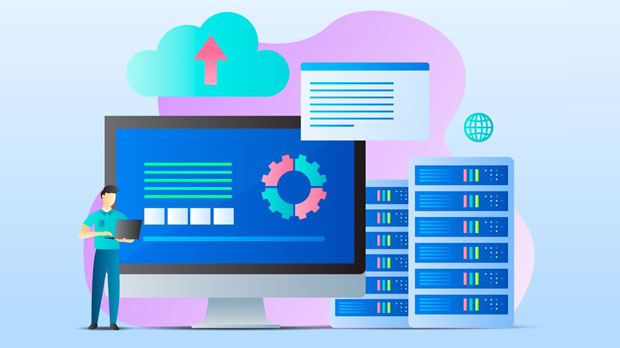Static ISP Proxy services have emerged as an invaluable tool in e-commerce, playing a critical role in enhancing the overall shopping experience for consumers. By utilizing static IP addresses, these proxies provide a more reliable, secure, and efficient browsing experience for users. static ISP proxies help businesses ensure faster load times, better location targeting, and increased privacy, which ultimately contribute to higher customer satisfaction and engagement. This article explores the key benefits of static ISP proxy services in e-commerce, analyzing their impact on performance, security, customer experience, and business outcomes. What is Static ISP Proxy Service?Static ISP proxies are a type of internet connection that uses fixed IP addresses provided by an Internet Service Provider (ISP). Unlike dynamic IP addresses, which change frequently, static IP addresses remain the same over time. This consistency allows businesses to maintain a stable connection with customers, offering several advantages that contribute to an improved e-commerce experience. In essence, static ISP proxies act as intermediaries between the user and the website, ensuring seamless interactions without interruptions or delays.Enhancing Website Speed and PerformanceOne of the most significant benefits of using static ISP proxy services in e-commerce is the improvement in website speed and performance. E-commerce platforms require high responsiveness, as slow loading times can result in lost sales and frustrated customers. Static ISP proxies help alleviate this issue by maintaining a stable connection to the website, which results in faster data transfer and lower latency.With static ISP proxies, businesses can avoid issues such as IP throttling or blocks, which can occur when using dynamic IP addresses. By having a fixed IP, customers experience uninterrupted browsing, reducing the chances of encountering server errors or slowdowns. This leads to a smoother shopping experience and increased customer satisfaction, which is vital in retaining customers and improving conversion rates.Improved Location Targeting and Personalized ShoppingStatic ISP proxies also provide e-commerce businesses with better location targeting capabilities. By using proxies associated with specific geographic regions, businesses can serve localized content, offers, and promotions tailored to the customer’s location. This improves the relevance of marketing efforts, increasing the likelihood of customer engagement and conversions.For example, an online retailer can use static ISP proxies to display region-specific product recommendations, promotions, or pricing. This targeted approach can help businesses connect with customers in a more meaningful way, making their shopping experience feel more personalized and responsive to local preferences. Additionally, localized content helps businesses comply with regional laws and regulations, such as tax rates or shipping restrictions, further improving the customer experience.Enhanced Security and Privacy ProtectionSecurity and privacy are top concerns for online shoppers, and static ISP proxies offer additional protection for both businesses and consumers. By routing traffic through secure proxies, e-commerce websites can mask their real IP addresses, reducing the risk of cyberattacks, such as Distributed Denial of Service (DDoS) attacks, which can disrupt services and cause website downtime. Static ISP proxies provide an added layer of protection against malicious activity, ensuring that websites remain secure and accessible.From the customer's perspective, static ISP proxies offer enhanced privacy by masking their personal IP addresses, preventing third parties from tracking their online activity. This is especially important for shoppers who are concerned about data privacy or who are wary of sharing personal information during online transactions. By using static ISP proxies, businesses can assure customers that their data is protected, fostering trust and loyalty in the long term.Preventing Fraud and Ensuring Account SafetyFraud prevention is a significant challenge in the e-commerce industry. Static ISP proxies help mitigate fraudulent activities by providing a reliable and consistent IP address. This consistency can be used to identify and track suspicious activities, such as multiple failed login attempts or unusual purchasing patterns. By monitoring IP addresses, businesses can flag and prevent potential fraud before it becomes a problem.Furthermore, static ISP proxies can prevent account takeovers, which are common in e-commerce platforms. Since the IP address remains static, businesses can detect irregular access attempts from unknown or blacklisted IP addresses, triggering additional security measures like CAPTCHA verification or multi-factor authentication (MFA). This ensures that customers' accounts are safe and secure, which is essential in maintaining consumer trust.Boosting Customer Trust and EngagementIn the competitive world of e-commerce, customer trust is invaluable. Static ISP proxies contribute to building trust by improving website performance, ensuring security, and offering personalized experiences. When customers experience faster loading times, targeted content, and secure transactions, they are more likely to return to the site and recommend it to others. This leads to increased customer loyalty and higher engagement rates.Moreover, by protecting sensitive customer data and ensuring secure transactions, businesses demonstrate a commitment to privacy and safety, which further enhances their reputation. Customers are more likely to engage with brands that they perceive as trustworthy and secure, making static ISP proxies an essential tool in gaining a competitive advantage in the market.Conclusion: The Impact of Static ISP Proxy Services on E-commerce SuccessIn conclusion, static ISP proxy services provide a range of benefits that significantly enhance the shopping experience in e-commerce. From improving website speed and performance to ensuring better location targeting, privacy protection, and fraud prevention, these proxies play a crucial role in building a seamless and secure shopping environment. By adopting static ISP proxies, e-commerce businesses can offer their customers a faster, safer, and more personalized experience, leading to increased satisfaction, loyalty, and ultimately, higher sales and revenue.As the e-commerce landscape continues to evolve, leveraging static ISP proxies will remain a strategic choice for businesses aiming to stay competitive and deliver a superior customer experience.
May 14, 2025



































































